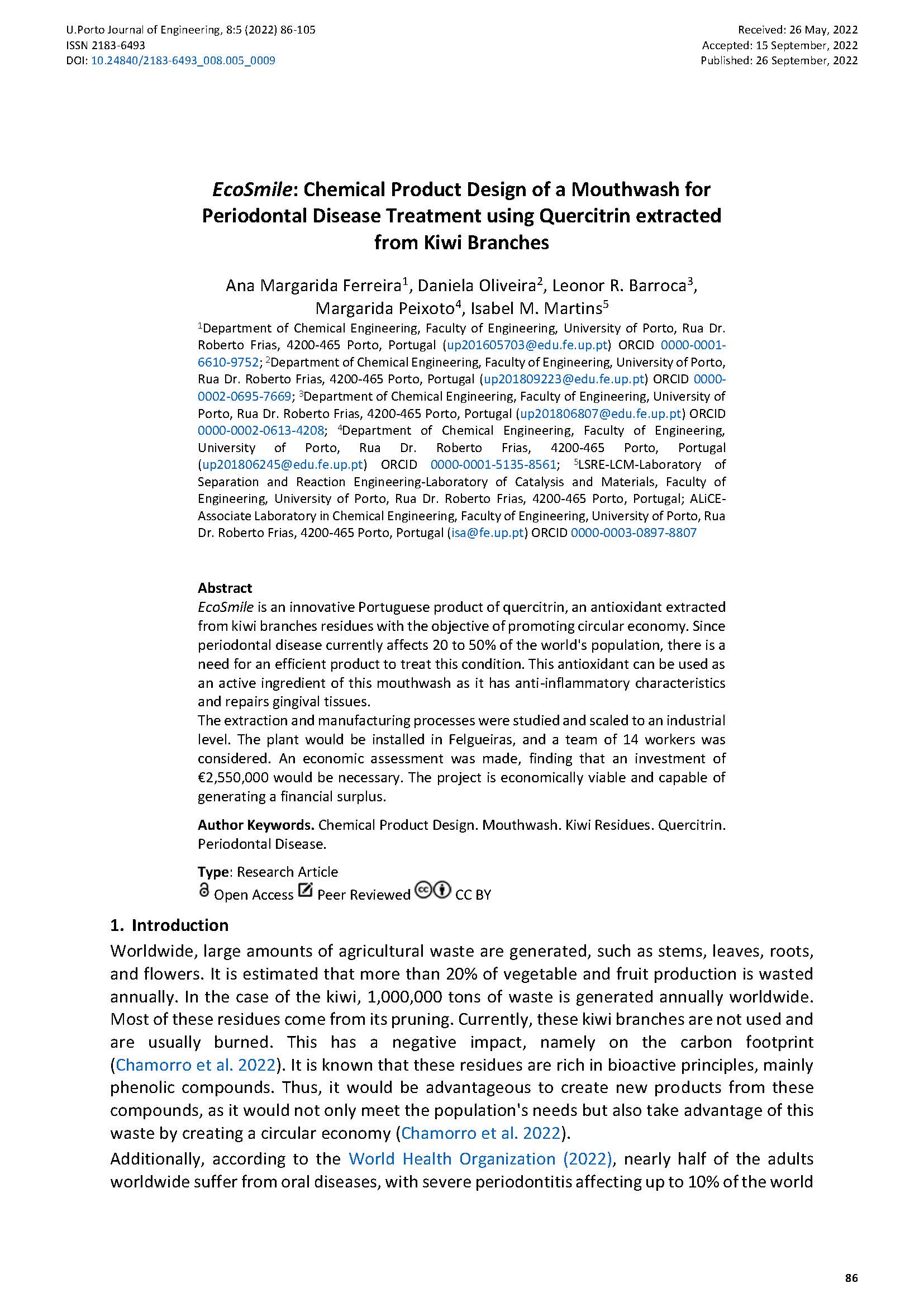EcoSmile Chemical Product Design of a Mouthwash for Periodontal Disease Treatment using Quercitrin extracted from Kiwi Branches
Main Article Content
Abstract
EcoSmile is an innovative Portuguese product of quercitrin, an antioxidant extracted from kiwi branches residues with the objective of promoting circular economy. Since periodontal disease currently affects 20 to 50% of the world's population, there is a need for an efficient product to treat this condition. This antioxidant can be used as an active ingredient of this mouthwash as it has anti-inflammatory characteristics and repairs gingival tissues.
The extraction and manufacturing processes were studied and scaled to an industrial level. The plant would be installed in Felgueiras, and a team of 14 workers was considered. An economic assessment was made, finding that an investment of €2,550,000 would be necessary. The project is economically viable and capable of generating a financial surplus.
Downloads
Article Details

This work is licensed under a Creative Commons Attribution 4.0 International License.
Authors who publish with this journal agree to the following terms:
- Authors retain copyright and grant the journal right of first publication with the work simultaneously licensed under a Creative Commons Attribution License that allows others to share the work with an acknowledgement of the work's authorship and initial publication in this journal.
- Authors grant the journal the rights to provide the article in all forms and media so the article can be used on the latest technology even after publication and ensure its long-term preservation.
- Authors are able to enter into separate, additional contractual arrangements for the non-exclusive distribution of the journal's published version of the work (e.g., post it to an institutional repository or publish it in a book), with an acknowledgement of its initial publication in this journal.
- Authors are permitted and encouraged to post their work online (e.g., in institutional repositories or on their website) prior to and during the submission process, as it can lead to productive exchanges, as well as earlier and greater citation of published work (See The Effect of Open Access).

